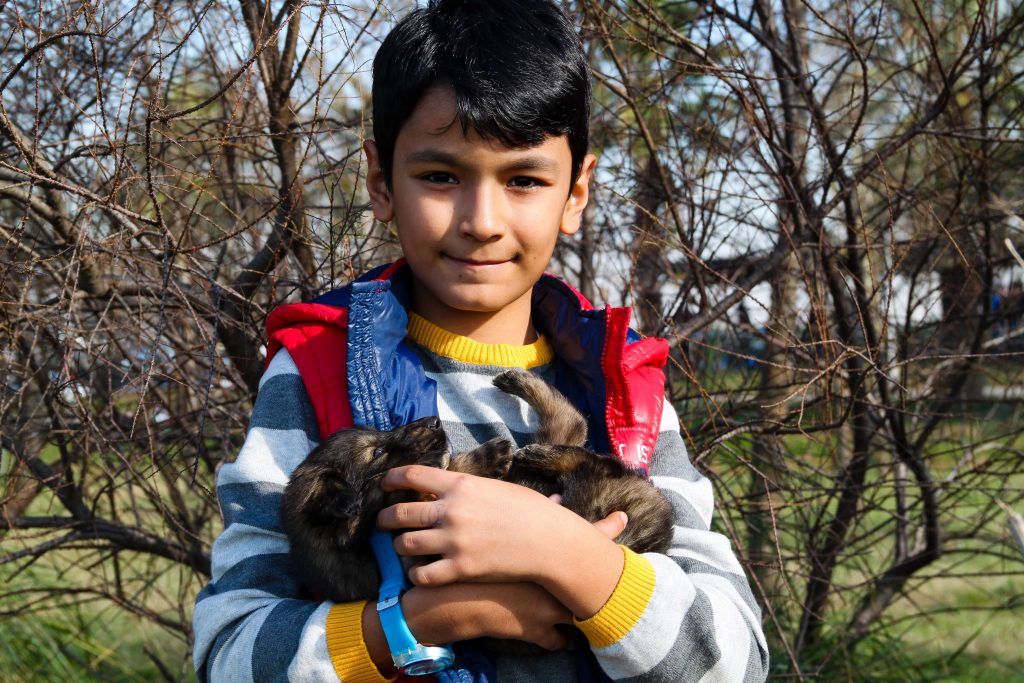For many parents, the challenges of the pandemic are amplified by extreme amounts of togetherness and shared space with children.

There are a few things you can do to help your family manage through these stressful times:
Acknowledge the challenges. Let children know that you understand there are new challenges for them. Discuss openly what is happening in their lives and be truthful about the situation without being scary. If possible, come up with solutions to problems together so children feel they have some control.
Schedule family meetings. Have regular family meetings to discuss concerns, talk about household rules, and communicate with each other. For tips on communication, read Effective Family Communication.
Keep a positive focus. Try to remain as positive as possible. Acknowledge issues, but do not dwell on them. Help children understand what control they have and how best to deal with any situation.
Set boundaries. Set physical and emotional boundaries. Ensure everyone has a place they can go to when they need time alone. Parents need to recognize that children may not be able to recognize they need alone time, so watch for behaviours; emotions may become more intense, frustration may happen quicker, tempers may flare. Help your child to recognize this is happening and encourage them to remove themselves from the situation and take some down time.
Make it simple for children to understand boundaries by making rules. This might mean creating a rule around closed doors such as, “When the door is shut, it means your brother needs private time.” Or set parameters around small spaces that allow family members to have a bit of alone time. “When your sister is sitting in the rocking chair, she doesn’t want to be disturbed.” For more suggestions read Sharing Space at Home.
Stay on top of teasing or other behaviours that may impact children. Being in close proximity for longer periods of time may make this behaviour unmanageable to some kids. While teasing and jokes can be fun, they may unintentionally hurt another person’s feelings.
Build family connections. Find new ways to connect as a family. Board games, reading books or watching movies together and perhaps even a new hobby or craft will help you appreciate each other differently. If there are extended family members outside of the household, find ways to include them while following pandemic guidelines. Children can bake/cook and drop off items (while social distancing). Try to connect using technology so that children (especially the very young) can see other family members and interact with them. Sending pictures, drawings or other handmade items will also help to keep connections.
Maintain other social connections. With quarantines, self-isolations, and school closures, social connections are difficult to maintain. For children, social connections are an important part of development, so encourage connections through other ways, like virtual meets or phone calls. Playing video games online with a friend can give children the same connection as a play date. Encourage outdoor play dates and activities ensuring community guidelines are followed.
Limit media use and screen time for everyone. Be a good example to your kids by limiting screen time. Although at times it is easier to let an electronic device keep your children busy, try not to rely on them every day. The Public Health Agency of Canada suggests less than one hour a day for children aged 2-5 years and no screen time at all for children under two. In 2019, the Canadian Paediatric Society released guidelines promoting healthy screen use in older kids that focus more on how and when screens are used, rather than how long. Specialists continue to suggest parents stay active in monitoring social media use and suggest devices be kept in a common area to control when and how children use screen time.
As a parent, limit your time reading or viewing the news and monitor the media that is seen by children. Putting controls on where children are able to access information will ensure they are receiving current and factual information. Have discussions with your kids about the current events they see to decrease their worries and bring the information to the child’s level.
Practice self-care. Self-care is often suggested for adults but is also important for children. Refer to Staying Calm in the Chaos for suggestions on ways all family members can stay grounded and take care of their mental health.
Children are resilient and with support and guidance from their families they will continue to grow and develop successfully even when dealing with challenging times.
Further reading in H&F Hub:
The World Health Organization has many tips and articles on being healthy at home during the pandemic.
You might also enjoy reading these HomeFamily contributor articles:






